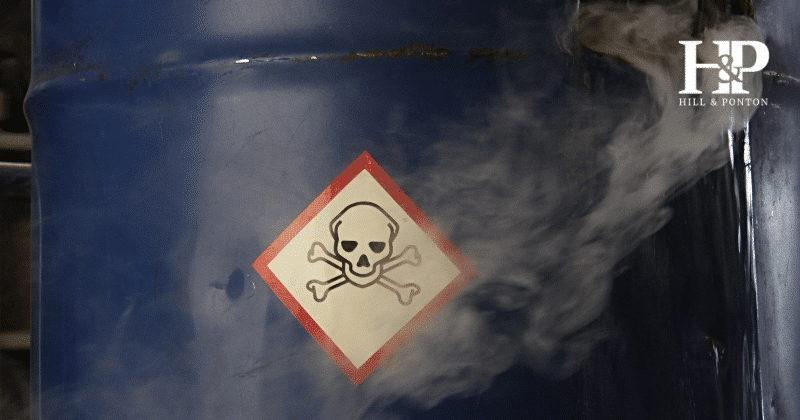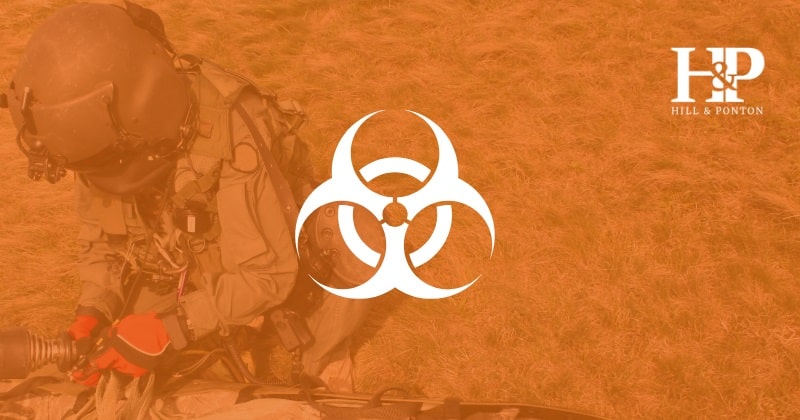Toxic Exposure Risk Activities (TERA) and a TERA medical opinion are critical components in the evaluation of veterans who were exposed to hazardous substances during their service.
TERA encompasses a range of activities where toxic exposure could have occurred, and is meticulously monitored through an exposure tracking record system, such as the Individual Longitudinal Exposure Record (ILER).
This system allows Veterans Affairs (VA) and others to manage and review exposure details that are important for processing claims. Awareness and understanding of what constitutes a TERA is crucial for veterans wanting to file for disability benefits.
What is TERA?
TERA includes any activities that happened during military service that potentially exposed service members to toxic substances, necessitating documentation in a tracking system.
Examples of these activities include:
- Exposure to burn pits
- Handling hazardous materials like pesticides and herbicides (Agent Orange)
- Working in close proximity to radiation sources
- Drinking or utilizing toxic drinking water (Camp LeJeune)
- Exposure to industrial solvents, asbestos, lead and chemical agent resistant coating in paints
- Inhaling particulates from oil well fires, sulfur fires or dust and sand in arid environments
Veterans who participated in activities like the ones listed above (among others) during active duty, training sessions or while on inactive duty are considered under TERA guidelines for VA benefits.
VA TERA Presumptive Conditions and the PACT Act
The VA recognizes certain medical conditions as “presumptive” due to veterans’ exposure to toxic substances during their military service, which simplifies their claims process.
These presumptive conditions allow veterans to receive benefits without individually proving the connection between their service and the condition, as long as they were involved in Toxic Exposure Risk Activities (TERA).
Presumptive Conditions Linked to Burn Pit Exposure
- Respiratory Diseases
- Asthma (diagnosed post-service)
- Chronic Bronchitis
- Constrictive bronchiolitis
- Pulmonary fibrosis
- Cancers
- Gastrointestinal cancer of any type
- Respiratory (breathing-related) cancer of any type
- Glioblastoma
- Brain cancer
- Head and neck cancer
Presumptive Conditions from Contaminated Water at Camp LeJeune
- Adult leukemia
- Aplastic anemia and other myelodysplastic syndromes
- Bladder cancer
- Liver cancer
- Kidney cancer
- Multiple myeloma
- Non-Hodgkin lymphoma
New Presumptive Conditions Related to Agent Orange Exposure
- Extend Geographic Locations
- Thailand military bases
- Parts of Cambodia
- Guam and American Samoa
- Associated Health Conditions
- High Blood Pressure (hypertension)
- Monoclonal gammopathy of undetermined significance (MGUS)
Veterans applying for these conditions should read more about them and utilize VA Form 21-526EZ, clearly indicating their exposure and associated health conditions.
Because these conditions are presumptive, the VA facilitates faster and more effective delivery of benefits to veterans suffering from them.
Eligibility for Health Care Benefits and How to Apply
To qualify for benefits under TERA, veterans must have participated in activities that exposed them to toxic substances during sanctioned military service times. Veterans need to demonstrate that their health concerns are connected to the toxic exposures documented during their service.
If a veteran’s toxic exposure occurred outside official military duties, such as civilian or private contract work, it generally does not qualify for TERA-related benefits.
This distinction is crucial for maintaining the integrity of the benefits system and ensuring resources are directed toward veterans who need them most and qualify under the rules defined by military service requirements.
How to Apply for Health Care Benefits Under TERA
Veterans who believe they were exposed to toxic substances during eligible service periods should initiate their benefits application through the appropriate VA Form 526EZ..
Additional documentation might include things like:
- Your military service records (DD-214)
- Medical records where your illness from exposure is discussed
- Any evidence indicating your condition and how it impacts your life
- Buddy statements from fellow service members
- Lay statements from family, friends and colleagues who know how your illness impacts your day-to-day life
- A strong nexus letter from a medical professional connecting your condition to your service
Veterans affected by toxic exposures during their service have avenues for support and compensation through the PACT Act and TERA provisions. Understanding these rules set forth by the VA and how to properly apply for these benefits ensure you can get the compensation you and your family deserve for your service.
Did the VA Deny Your Disability Claim?
Let our team review your case today!
Get a Free Case Evaluation



